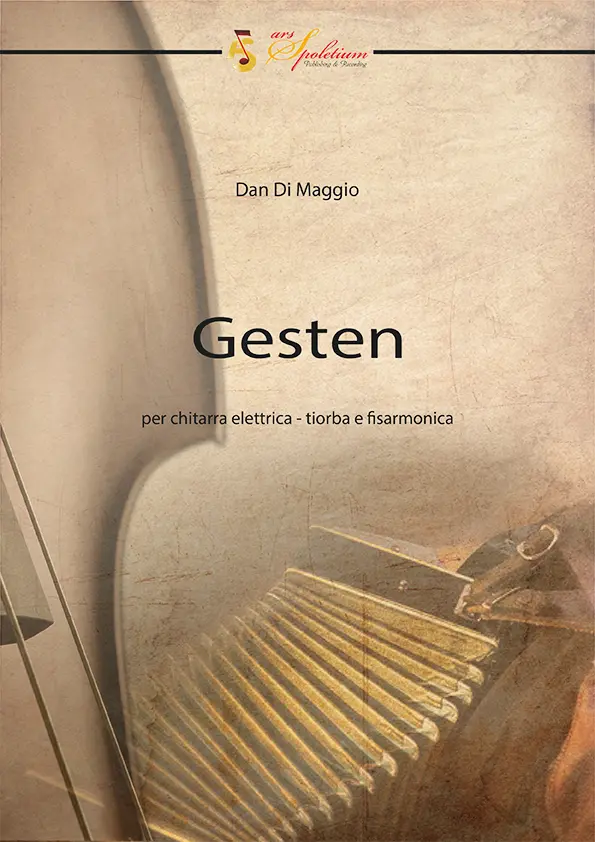Gesten
Cos’è un gesto? È un movimento che accompagna o sostituisce la parola, un’azione che intende comunicare qualcosa. “Gesten” è vocabolo tedesco, ma mi piace ricordare che in “Middle English” (l’inglese parlato dalla conquista normanna fino al XV secolo) “to gesten” vuol dire “leggere poesie ad alta voce”…
(LA PARTITURA IN OGGETTO È DISPONIBILE SOLO NELLA VERSIONE PDF)
What is a gesture? It’s a movement that accompanies or replaces words, an action that intends to communicate something. “Gesten” is a German word, but I like to remember that in “Middle English” (the form of the English language spoken after the Norman conquest until the late 15th century) “to gesten” means “to read poetry aloud”…
(ONLY PDF VERSION)
Cos’è un gesto? È un movimento che accompagna o sostituisce la parola, un’azione che intende comunicare qualcosa. “Gesten” è vocabolo tedesco, ma mi piace ricordare che in “Middle English” (l’inglese parlato dalla conquista normanna fino al XV secolo) “to gesten” vuol dire “leggere poesie ad alta voce”… Quindi di comunicazione (persino sofisticata e poetica) si tratta, ma anche di segnali di vita, di suoni che si sovrappongono e si intersecano con grande precisione. I musicisti del Trio provano, si organizzano, cercano di dominare e prefigurare la realtà nel suo svolgimento, ma operano in un contesto imprevedibile, capricciosamente casuale, non dominabile.
Il Trio “galleggia” nel mare sonoro dell’elettronica, un po’ viene sommerso, poi riemerge… Insomma, è questo lo spirito del pezzo: gesti complessi, che necessitano di grande attenzione e impegno, che prendono vita in un ambiente turbolento e indifferente.
Dan Di Maggio
What is a gesture? It’s a movement that accompanies or replaces words, an action that intends to communicate something. “Gesten” is a German word, but I like to remember that in “Middle English” (the form of the English language spoken after the Norman conquest until the late 15th century) “to gesten” means “to read poetry aloud” … So, it’s about communication (even sophisticated and poetic), but it’s also about signs of life, sounds that overlap and intersect with each other with great precision. The musicians of the Trio rehearse, organize themselves, try to dominate and prefigure reality as it unfolds, but operate in an unpredictable, capriciously casual, non-dominable context.
The Trio “floats” in the sonic sea of electronics, is submerged a little, then re-emerges … In short, this is the spirit of the piece: complex gestures, which require great attention and commitment, coming to life in a turbulent and indifferent environment.
Dan Di Maggio




